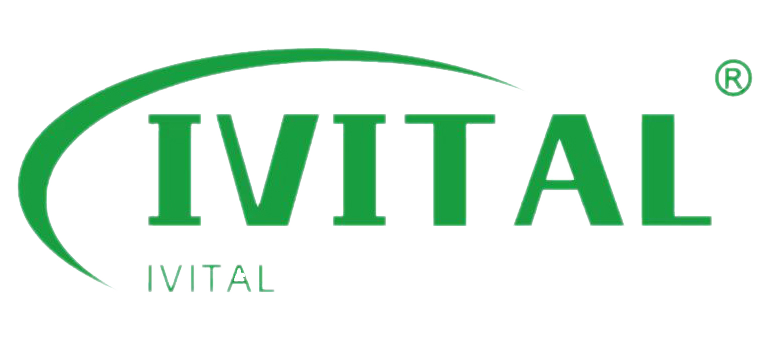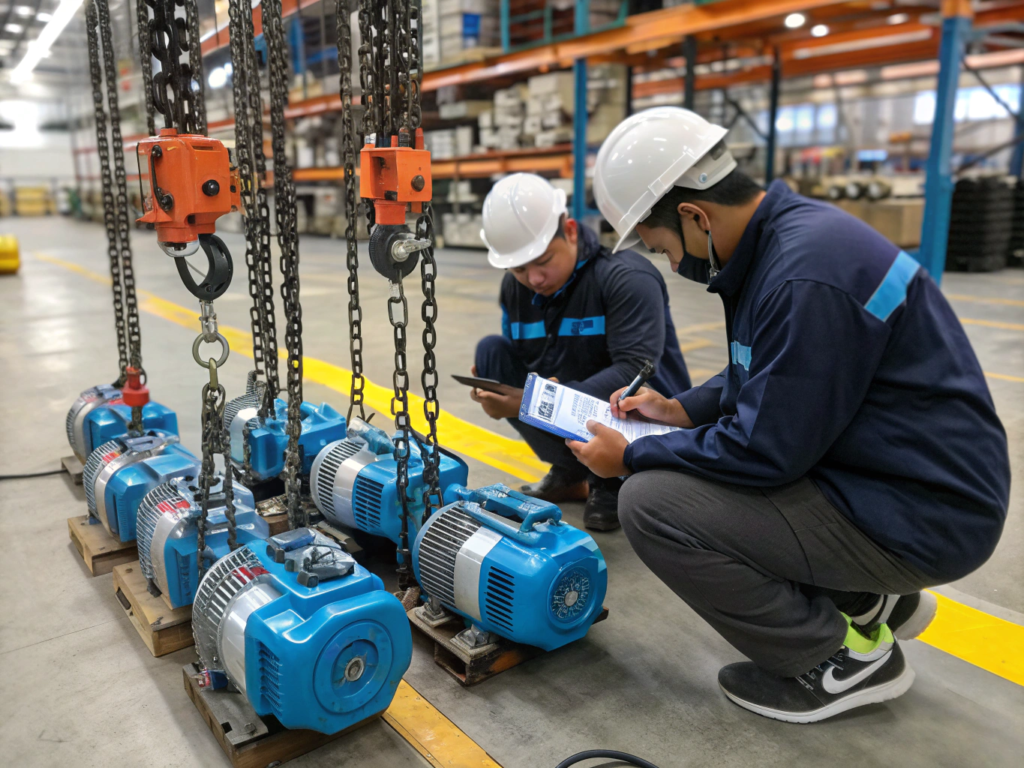When I first exported electric hoists to Dubai, I thought customs clearance would be simple. It wasn’t. My shipment was held because I didn’t have ECAS certification. After that, I made sure to understand every step of the process.
ECAS certification is mandatory for electric hoists imported to the UAE. For certain projects, the EQM quality mark is also required. Without these certifications, products can’t pass customs or enter the supply chain.
Since then, I’ve managed several ECAS certifications for clients. If you’re looking to export electric hoists to the UAE, here’s my guide to getting it right.
[Table of contents]
- What Is ECAS Certification and Why Is It Required for Electric Hoists in the UAE?
- When Is the EQM Quality Mark Necessary for Electric Hoists?
- How Does the ECAS Certification Process Work for Electric Hoists?
- What Documents Are Required for ECAS Certification and Customs Clearance?
- How Long Does ECAS Certification Take and What Does It Cost?
- Who Can Help with ECAS and EQM Certification for Electric Hoists in the UAE?
- Conclusion
What Is ECAS Certification and Why Is It Required for Electric Hoists in the UAE?
When I started exporting to the UAE, ECAS was the first certification I had to deal with.
ECAS (Emirates Conformity Assessment Scheme) certifies that electric hoists meet UAE health, safety, and environmental standards. Without ECAS certification, customs will not release your goods.
It’s a legal requirement for all controlled electrical equipment, including hoists used in construction, logistics, and energy projects. Once approved, the ECAS certificate is valid for one year.
When Is the EQM Quality Mark Necessary for Electric Hoists?
I once worked on a government energy project in Abu Dhabi. They required the EQM quality mark in addition to ECAS certification.
The EQM (Emirates Quality Mark) is a voluntary mark that demonstrates higher compliance with UAE standards. Some government and large-scale private projects require it.
Differences Between ECAS and EQM
| Certificate | Purpose | Requirement |
|---|---|---|
| ECAS | Basic compliance with UAE regulations | Mandatory for all controlled products |
| EQM | Higher quality and safety assurance | Voluntary but required in government and major projects |
If you want to win tenders in large energy or infrastructure projects, having EQM can give you a competitive edge.
How Does the ECAS Certification Process Work for Electric Hoists?
The first time I applied for ECAS, I found the process confusing. Now, I follow this step-by-step process.
My ECAS Certification Process
- Choose a Certification Body
I work with a third-party certification body approved by MOIAT (formerly ESMA). - Submit an Application
I provide product details, technical documents, and test reports. - Product Testing and Evaluation
Testing must be done in an accredited lab. The certification body checks the results. - Receive the ECAS Certificate
Once approved, I get the certificate, which I upload for customs clearance.
Third-Party Certification Bodies I’ve Used
- Intertek
- SGS Gulf
- TÜV SÜD Middle East
What Documents Are Required for ECAS Certification and Customs Clearance?
I’ve learned that incomplete documents are the biggest reason for delays. This is my standard checklist.
Documents You Need
| Document Name | Purpose |
|---|---|
| Product Technical File | Details on design, materials, and specs |
| Test Reports | Verify product safety (IEC or ISO standards) |
| Bill of Materials (BOM) | Lists all components of the electric hoist |
| Declaration of Conformity | Statement of compliance by the manufacturer |
| Importer’s Trade License | UAE commercial registration (for importer) |
| Product Photos | Images showing label and marking |
My Tip
Make sure the test reports are from a lab recognized by MOIAT. That speeds up approval.
How Long Does ECAS Certification Take and What Does It Cost?
The first time I applied, I didn’t account for testing delays. Now I always plan ahead.
ECAS certification usually takes 4 to 8 weeks. If you have complete documents and valid test reports, it can be faster.
Timeframe
| Step | Time (Approx.) |
|---|---|
| Application Review | 1-2 weeks |
| Product Testing (if needed) | 2-4 weeks |
| Certification Issuance | 1-2 weeks |
Costs
| Item | Cost (USD) |
|---|---|
| Application Fee | $500 – $1000 |
| Product Testing | $800 – $2000 (varies by complexity) |
| EQM Quality Mark (Optional) | $2000+ (depends on the project) |
Prices vary depending on the certification body and product category. Some agencies offer bundled deals if you certify multiple products.
Who Can Help with ECAS and EQM Certification for Electric Hoists in the UAE?
I’ve worked with different consultants and agencies over the years. They make a big difference, especially when dealing with MOIAT updates.
Agencies and Resources I Recommend
- Intertek (Dubai office)
- SGS Gulf Ltd.
- TÜV SÜD Middle East
- Local UAE Customs Brokers
- MOIAT Portal: https://moiat.gov.ae
Why I Use Agents
- They manage documentation
- They coordinate testing
- They update me on regulation changes
Conclusion
ECAS certification is essential for electric hoists exported to the UAE. If you want to supply large construction or energy projects, getting the EQM quality mark gives you an advantage.



